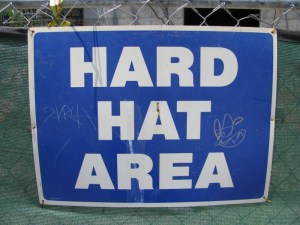Why Building Things in New York Comes Down to What You Learned (or Didn’t Learn) from Mom and Dad
By Matt Coyne February 16, 2011 6:13 pm
reprints New York real estaters met at NYU’s Schack Institute on Wednesday morning for a brief breakfast forum on construction ethics. While the mafia wasn’t represented—possibly because of the mass arrests last month—their presence could’ve gone a long way to help filling up the empty seats.
New York real estaters met at NYU’s Schack Institute on Wednesday morning for a brief breakfast forum on construction ethics. While the mafia wasn’t represented—possibly because of the mass arrests last month—their presence could’ve gone a long way to help filling up the empty seats.
“Here at New York University we’re trying to instill in our studetns a sense of ethical behavior,” said Richard Lambeck, a professor at Schack and moderator of the panel. “[Greed] is a major problem for our particular industry.”
The panel, called “illustrious” by Mr. Lambeck, included lawyer Neil Eiseman, former New York Buildings Commissioner Patricia Lancaster and Joel Kosman, who led the first sucessful criminal prosecution of a general contractor for the wrongful death of five workers in a scaffolding collapse.
Mr. Eiseman, who played on the idea of unethical behavior not necessarily being illegal, and Mr. Kosman, who posulated that the only meaningful way contractors can be punished is if one of their unethical actions results in a death, both generally agreed that it all comes down to your understanding of right and wrong. Ms. Lancaster, on the other hand, focused on her attempts to create ethical guidelines while at the Department of Buildings: thou shalt not use your company car for personal use, thou shalt not inflate invoices, etc.
“A lot of this really is subjective, and if you had parents that taught you right from wrong is probably 99.9 percent of it,” Mr. Eiseman said. “I don’t know if it’s something that you can teach.”
“The line between ethical conduct and someone being killed is pretty direct,” Mr. Kosman said.
The panelists, and New York Building Congress head Richard Anderson, who was there as an attendee, did agree—along with, we assume, anyone familiar with construction at all—that the industry is rife with corruption, or, as Mr. Anderson, who was recently profiled by The Commercial Observer, called it “a culture of tolerance.”
What followed was a lot of high-minded academic-speak focusing on making students—this was an NYU event—aware of ethics, what is right and wrong and infusing them with a deep-seated desire to do the right thing. But when it came down to practice—punishing Building Congress members for getting indicted was proposed—the ideas were backed off from relatively quickly, with Mr. Anderson saying he didn’t want to convict members before a trial.
mcoyne@observer.com



